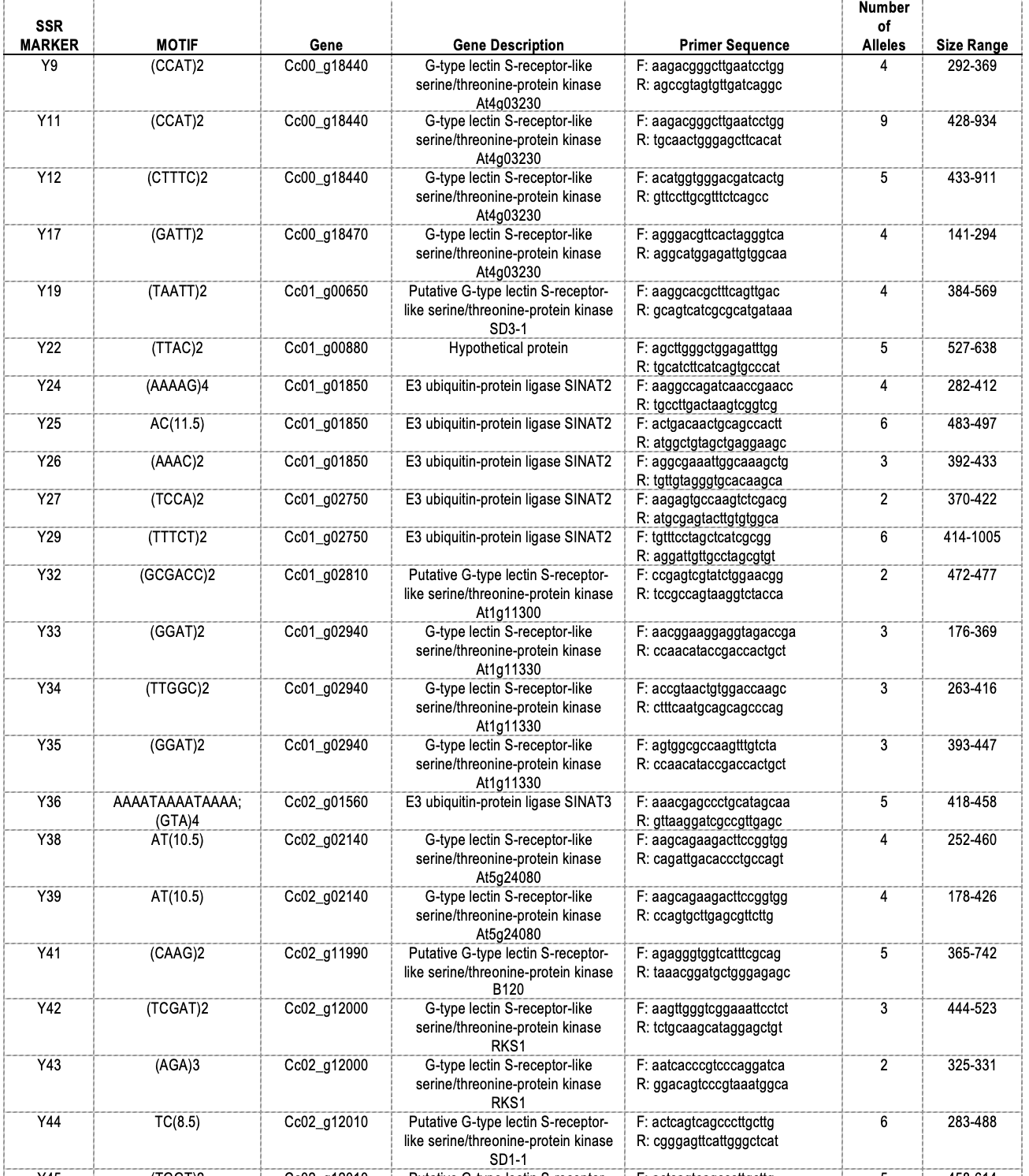VOLUME 16 NUMBER 1 (January to June 2023)

SciEnggJ. 2023 16 (1) 207-222
available online: June 24, 2023
*Corresponding author
Email Address: mvmondragon@up.edu.ph
Date received: March 15, 2023
Date revised: May 21, 2023
Date accepted: June 1, 2023
DOI: https://doi.org/10.54645/2023161VRD-27
ARTICLE
Screening of yield and growth-related SSR markers in Philippine coffee
University of the Philippines, Diliman, Quezon City
2Institute of Biology, College of Science, University of the Philippines,
Diliman, Quezon City
Yield is a complex trait affected by numerous factors, such as disease resistance, bean size and shape. Molecular markers such as simple sequence repeats (SSRs) can identify quantitative trait loci (QTL) associated with yield. For this study, SSR markers related to yield and growth, such as genes coding for certain protein kinases and ligases, were mined from the available Coffea canephora reference genome. A total of 100 SSR markers were screened using C. arabica (commonly known as Arabica coffee), C. canephora (commonly called as Robusta coffee), C. liberica var. liberica (locally known as Liberica coffee or Kapeng Barako) and C. liberica var. dewevrei (locally called as Kapeng Excelsa) as samples. These types have their own unique growth and yield characteristics making them suitable for comparison. Of the 82 loci successfully amplified, 46 loci were polymorphic. A total of 66 bands from 37 loci were specific to certain types. Nineteen (19) bands were specific to Arabica samples, five for Robusta, three for Liberica, and another three for Excelsa. The other remaining bands were shared by a combination of two or three types. Forty-six bands were found near genes annotated as enzymes that promote plant growth and the ability to respond and adapt to environmental signals like light, hormones and stress factors. The bands specific to Robusta might explain its moderate resiliency to abiotic stress conditions and better yield compared to the other species. These bands are indicative of genetic differences in the yield-related target loci. As such, these markers have great potential in marker-assisted selection for yield and growth improvement in Philippine coffee. This study is the first to identify potential yield and growth-related SSR markers in Philippine coffee types.
© 2026 SciEnggJ
Philippine-American Academy of Science and Engineering